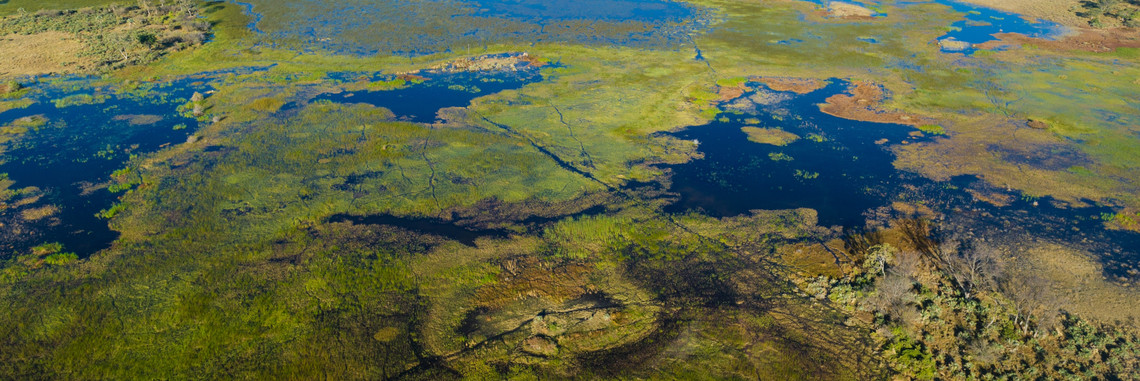International nature protection
In the year 2010, the member states in the global Convention on Biological Diversity (CBD), and therefore Germany as well, and the EU agreed to stop the dying out of species and the unchecked loss of ecosystems within ten years, that is by 2020. They also agreed that we should begin to restore damaged ecosystems. Deutsche Umwelthilfe campaigns to make sure that ecosystems at risk in Germany and Europe are also protected across borders. Internationally, the DUH campaigns to encourage both the German government, as well as companies and consumers, to make their contribution towards preserving the world's natural heritage. DUH itself has given considerable support to the nomination of the ISimangaliso Wetland Parks (St. Lucia) in South Africa and, most recently, the Okavango Delta in Botswana to be made a World Natural Heritage site.
In the middle of Africa's southern tip, the Okavango Delta is located in the north-west of Botswana. It is one of Africa's largest and most species-rich wetlands. The powerful Okavango River spreads out here and drains into the basin of the Kalahari Savannah. During the rainy season, the river transforms this basin into a paradise for all species living there. But this paradise is under threat, because water is valuable and sought after under Africa's sun. Thanks to the support of Deutsche Umwelthilfe, the Delta was taken onto the UNESCO World Heritage list in 2014 as the 1,000th region on it. A partial success. And our work continues!
With our Living Rivers symposia, we have been active in the Netherlands and along the border to Poland, among other places, in the last years. Those taking part in our symposia come from the Netherlands, Poland, the Czech Republic, Austria and Switzerland. Our next symposium on the Danube will direct our focus on Austria and the Balkan states. It's about the survival of the “living rivers”.
In the Szczecin Lagoon we are working on the cross-border Rewilding Oder Delta project with Polish partners as part of the Rewilding Europe network – we are the only German NGO that campaigns for rewilding in Germany's only rewilding region. We are represented in the Habitat Forum via the foundation of the same name and at EU level, and we are represented directly as an EEB member in the Biodiversity working group.
We are networked within the international Wilderness Movement and were at the last two Wilderness congresses in 2009 in Mérida (Mexico) and in 2013 in Salamanca (Spain). There we were able to push, in particular, the Wild Cities initiative.
Consumers can also make a personal contribution towards maintaining global biodiversity. By buying products like foods that are produced sustainably and traded fairly. By making sure how much “deforestation” is to be found in palm oil or other tropical forest products. By buying items of clothing, for example, with a sustainability quality seal, and by buying long-lasting quality products.

